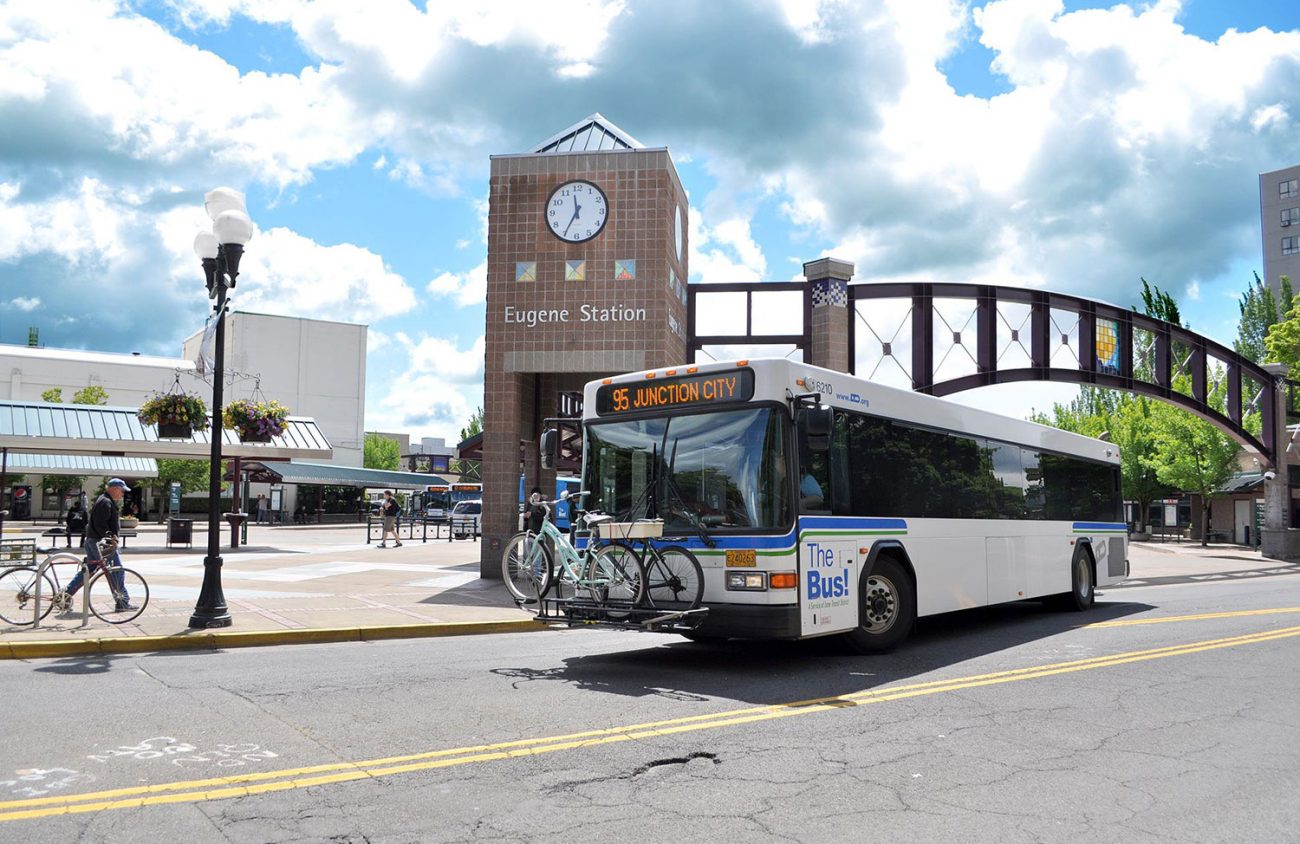Operators at Lane Transit District are working hard to keep buses moving around town. With more than 30 routes and countless stops, bus drivers, known as operators, are doing their best to keep things going for those who depend on public transit. But not without a cost.
A labor shortage, paired with the rapidly spreading Omicron variant, means there’s a lot to juggle for LTD bus operators, says Bill Bradley, executive board officer with Amalgamated Transit Union 757, LTD’s union. He says that the COVID-19 pandemic has caused some strain to bus operators.
“We just were working our operators a ton of hours every week, just to make the service work,” Bradley says. “In this environment, people are getting to the point of burnout.”
On Jan. 26, LTD operators came into work to discover that one of their safety measures, a yellow chain close to the operator that runs across the aisle, had been removed overnight. Bradley says it’s the one of the only measures taken to enforce social distancing for some buses. Eight buses use those safety chains, and all eight chains were removed that morning without warning.
LTD also removed yellow safety chains covering rear-facing seats on EmX buses. Bradley says these chains are important for operators to monitor mask-wearing and distancing from passengers. Operators have to report mask issues, but without those chains, they can’t see if passengers are wearing their masks. A total of 24 EmX buses had those chains pulled, and they haven’t been replaced.
“Generally, LTD is fairly good at communicating these changes, but this one definitely caught us off guard,” Bradley says. “They started work in the morning and things were gone. And there was no understanding as to why.”
It came as a shock to the operators, Bradley says, and he adds that there were comments from LTD management claiming that it could’ve been a request from the community, including the University of Oregon, to increase ridership. No formal exchanges have been made, according to UO spokesperson Saul Hubbard, and UO Transportation Services has not made any request to LTD regarding yellow safety chains on buses. Bradley says that LTD replaced the operator chains within half a day once ATU reached out to LTD Wednesday morning.
LTD spokesperson Pat Walsh says that the operator chain removal was just a mistake, and that once someone said something about it, the chains were put back on. Regarding UO’s alleged influence on COVID-19 protocols, Walsh says that LTD strictly follows federal guidelines with no influence from outside sources.
“Health and safety measures are always our primary priorities. They always are,” Walsh says. “LTD is doing all it can to keep people healthy and safe.”
According to the CDC, traveling on public transportation increases a person’s risk of getting and spreading COVID-19. Staying six feet away from others is often more difficult on public transportation than in a building, especially if riding for longer periods of time.
And operators are subjected to that environment for sometimes 10 to 12 hours a day, according to Bradley.
Labor shortages aren’t helping operators who have to endure enforcing mask mandates and social distancing for hours on end. Pre-pandemic, Walsh says, LTD had 197 bus operators compared to the 164 operators currently, and LTD has a need for 186 bus operators. According to Bradley, LTD runs on a system of mandatory overtime under its contract, but there is a financial benefit when the operator volunteers for the overtime rather than be required to fulfill it. He says that operators feel obligated to work because of it.
Bradley says that LTD cares about serving the community and doing whatever it takes to meet that service level, even if it means running their employees a little hard.
“They’re definitely breaking down,” Bradley says of the operators. “You can only run something so hard for so long.”
This story is a part of Eugene Weekly’s reporting series on the labor movement in Oregon, funded by the Wayne L. Morse Center for Law and Politics.
